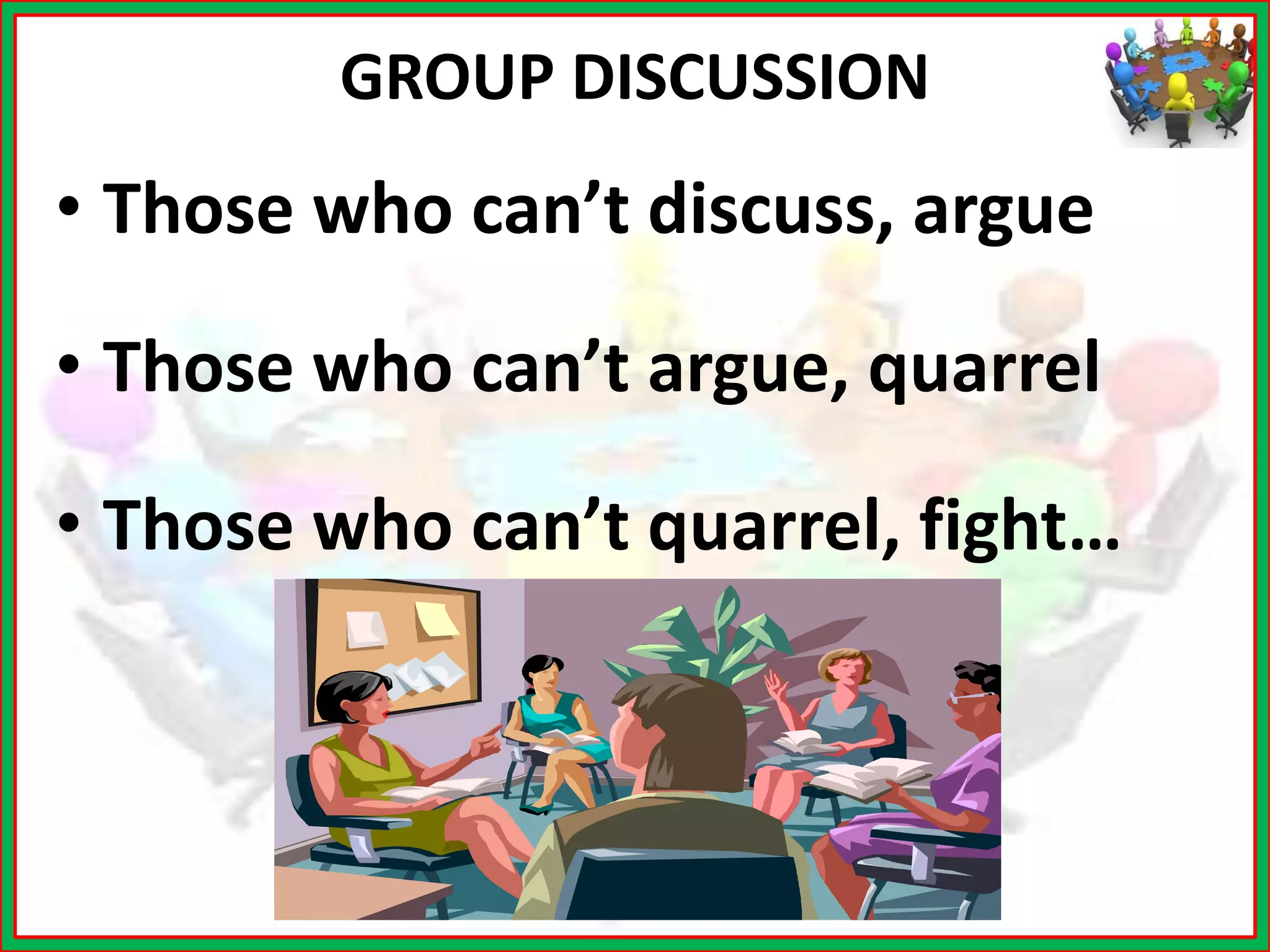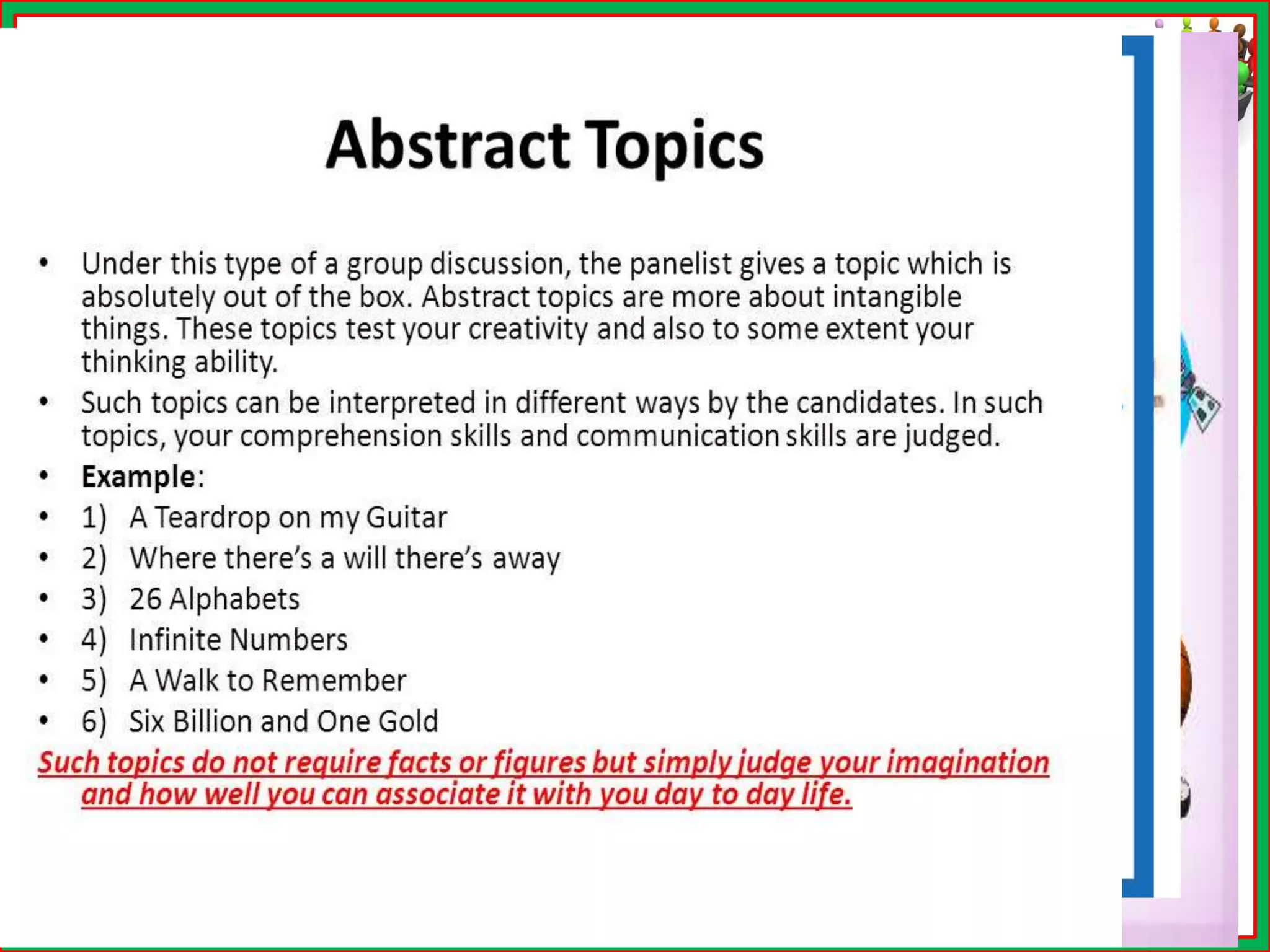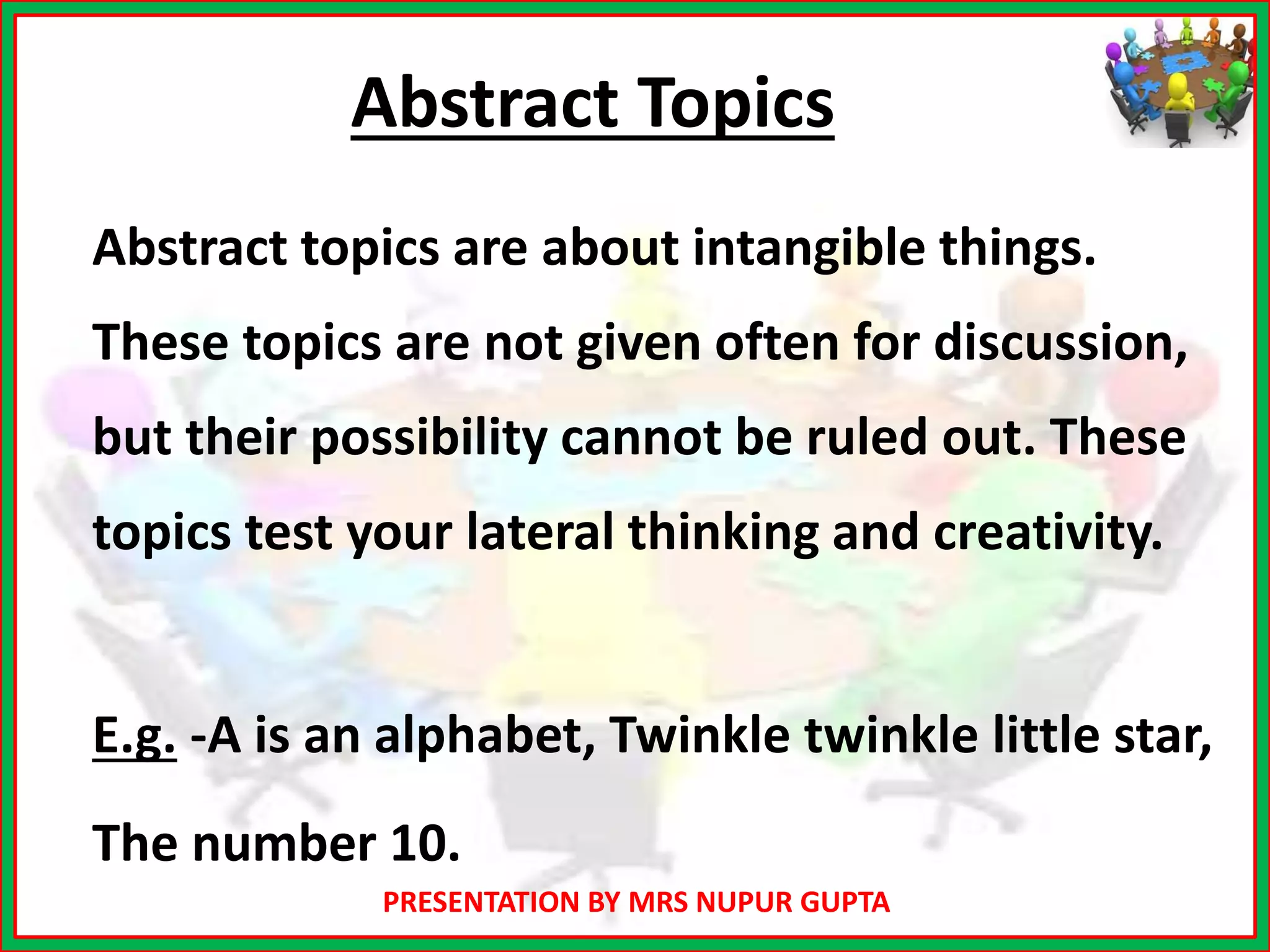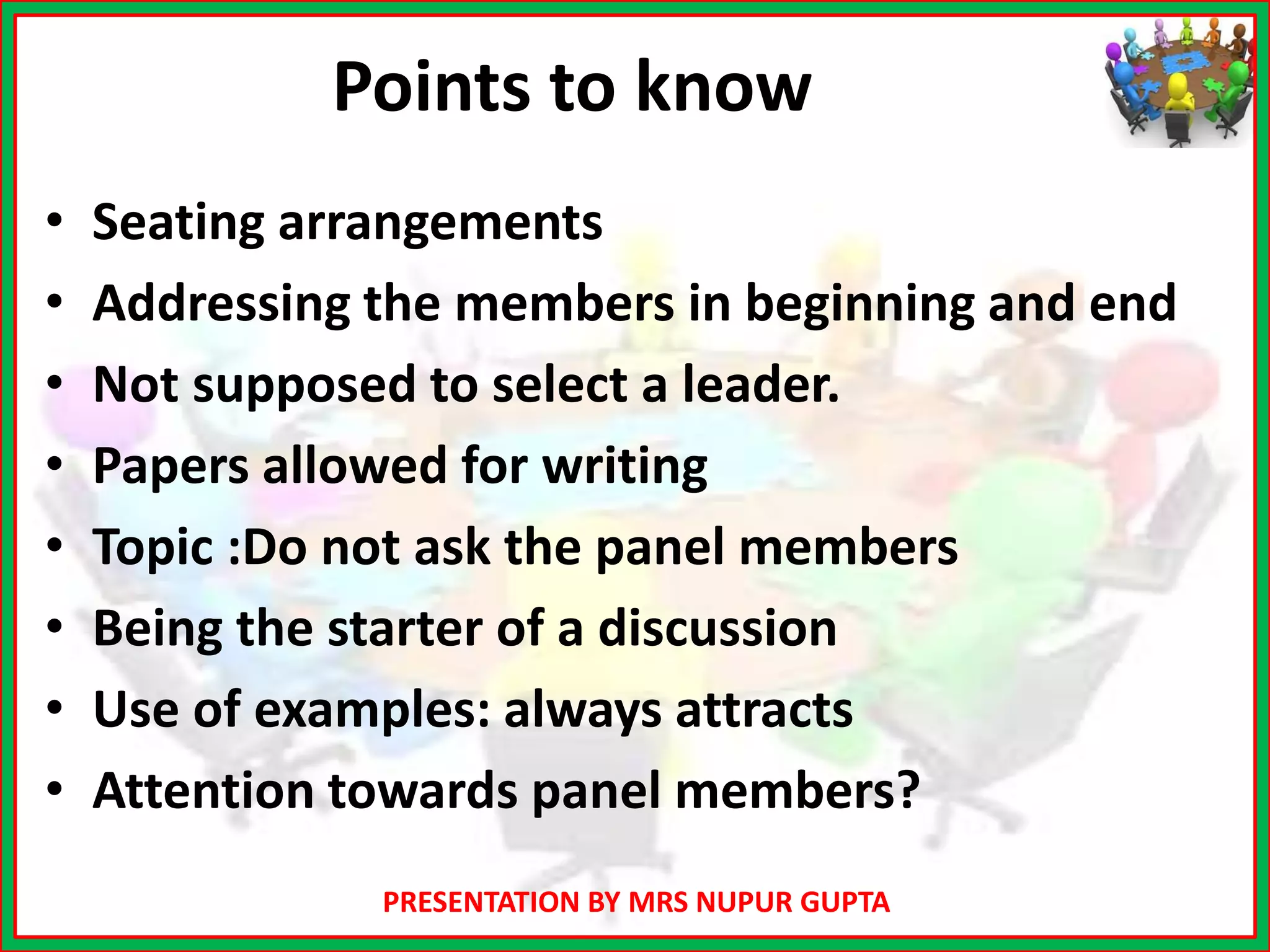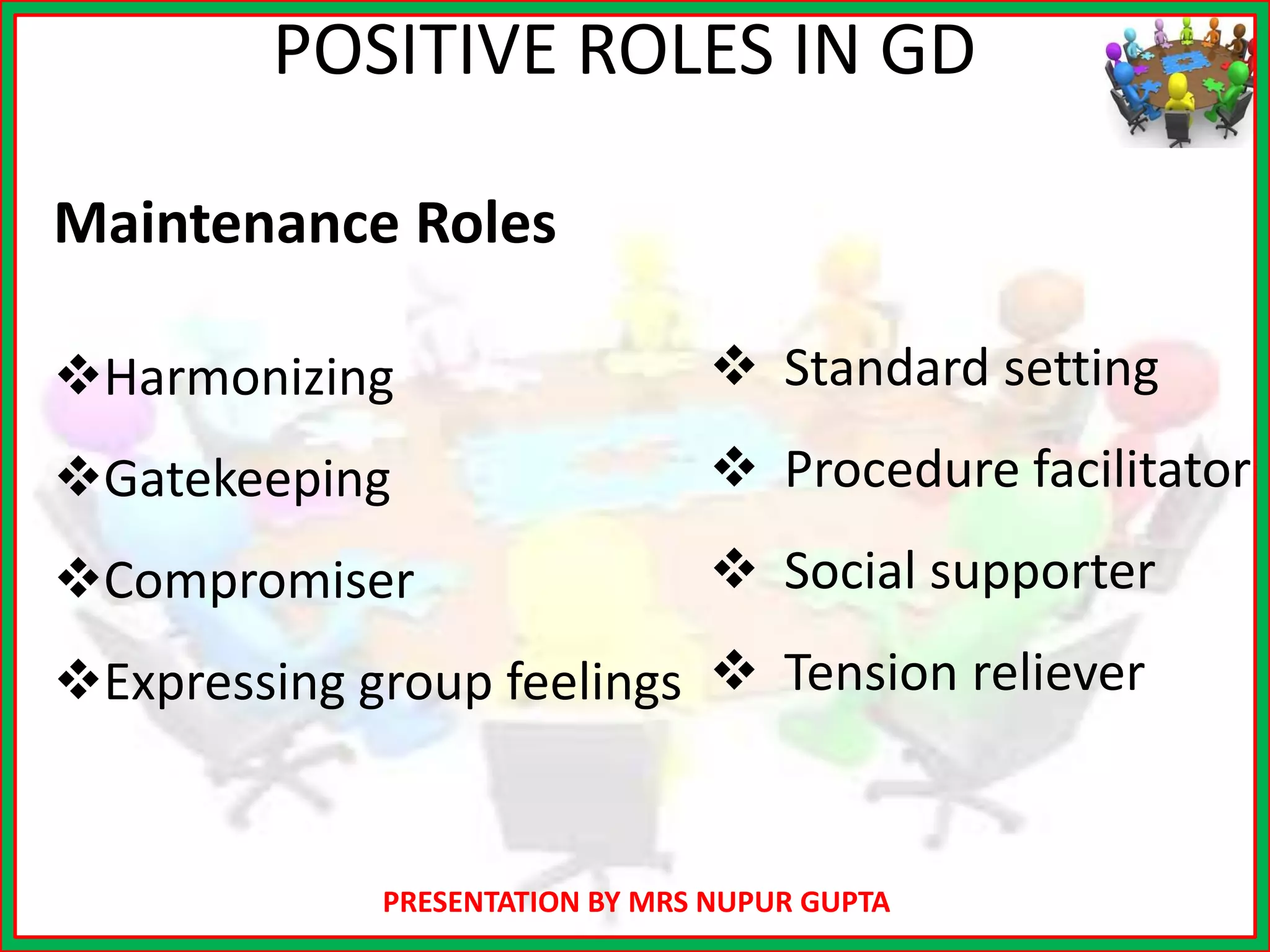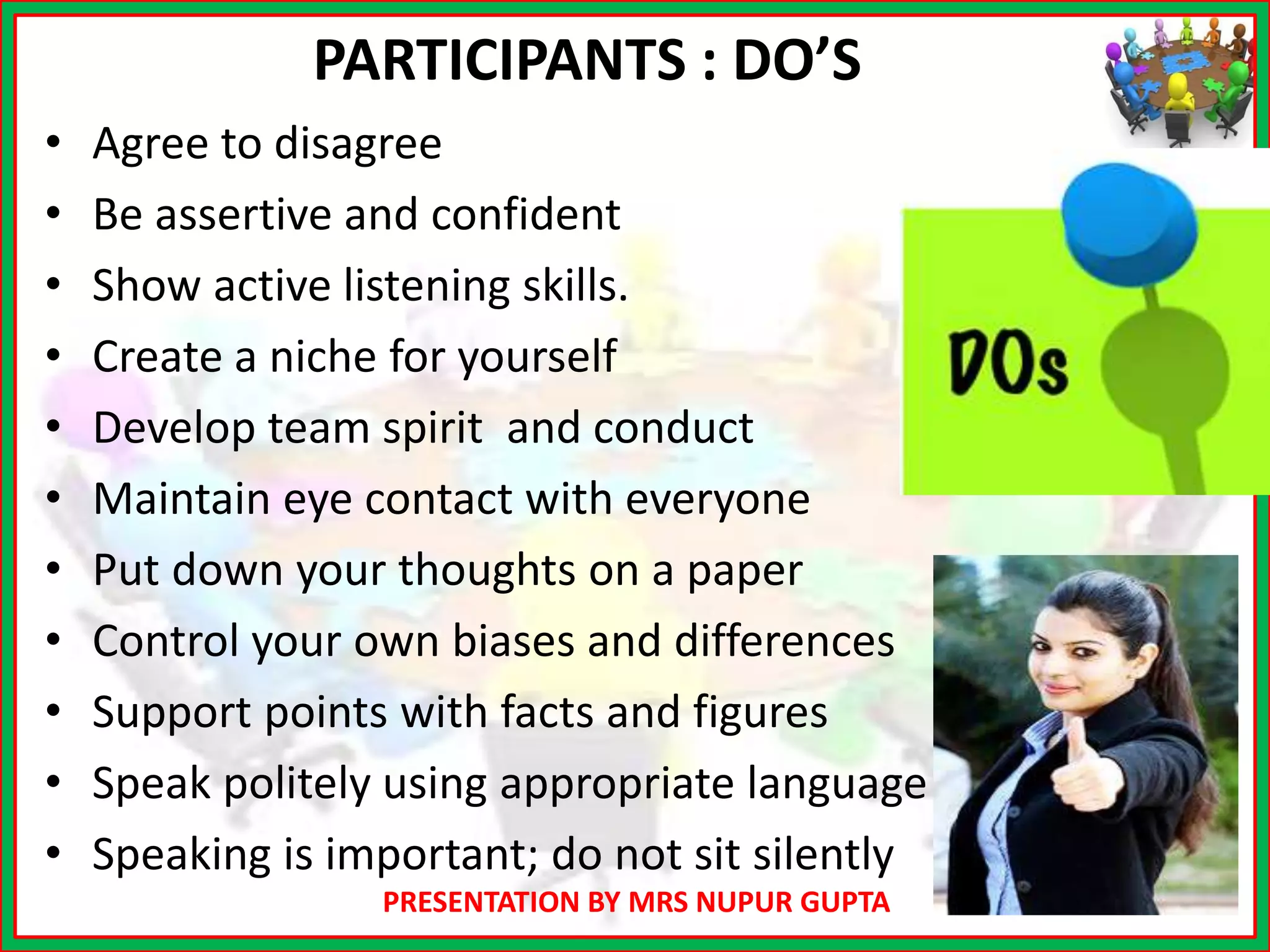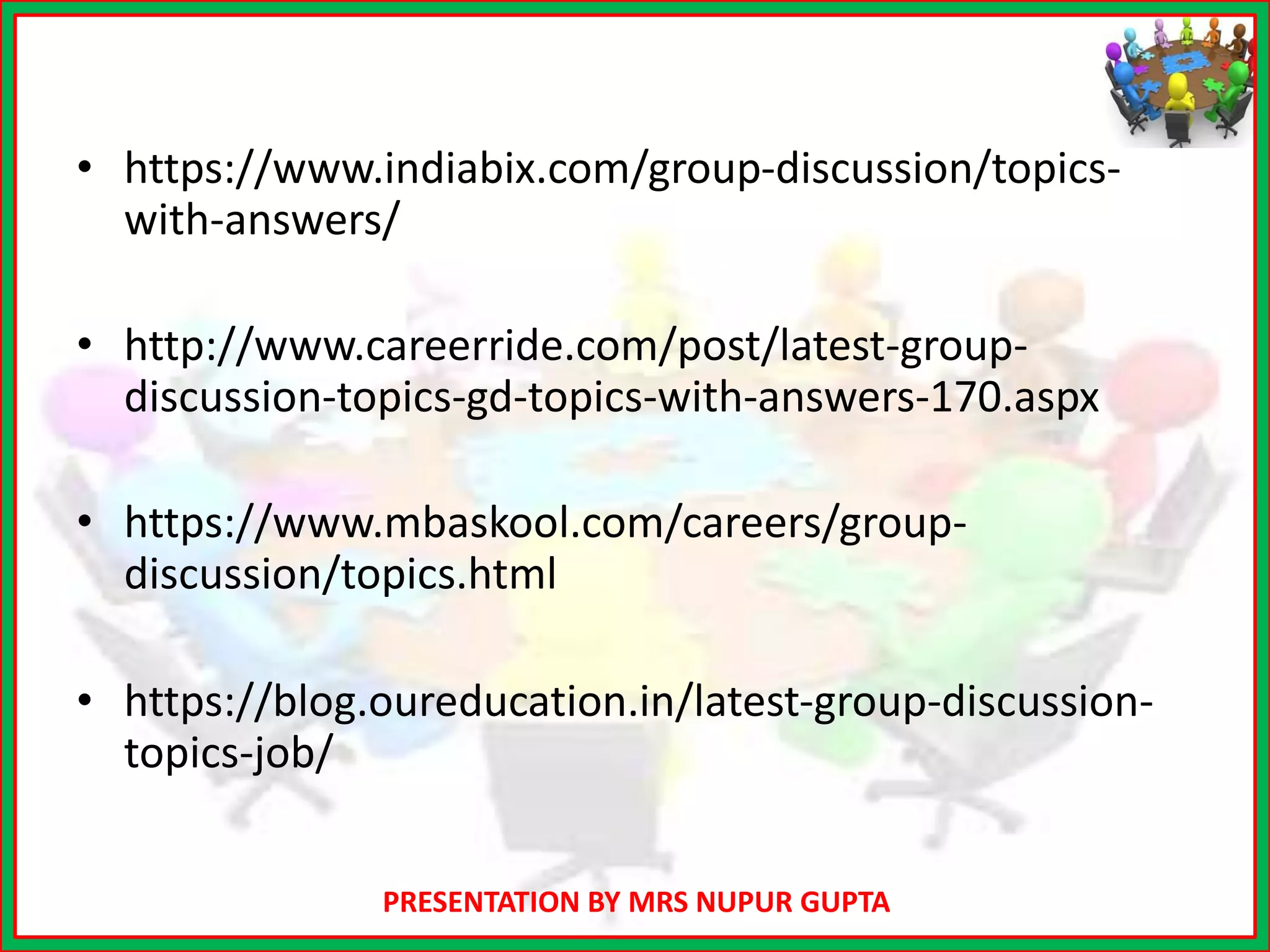Mrs. Nupur Gupta's presentation covered key aspects of group discussions, including definitions, features, topics, roles, dos and don'ts, and tips for preparation and participation. Some main points included: an effective group discussion allows members to accomplish a purpose or establish ongoing discussion; they typically involve 8-10 individuals discussing a topic for 10-30 minutes; members should express views freely but also listen to others and maintain a positive attitude. The presentation provided categories of discussion topics and guidelines for both positive and negative participant roles. [/SUMMARY]

